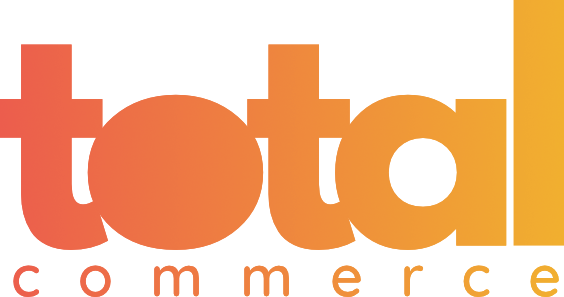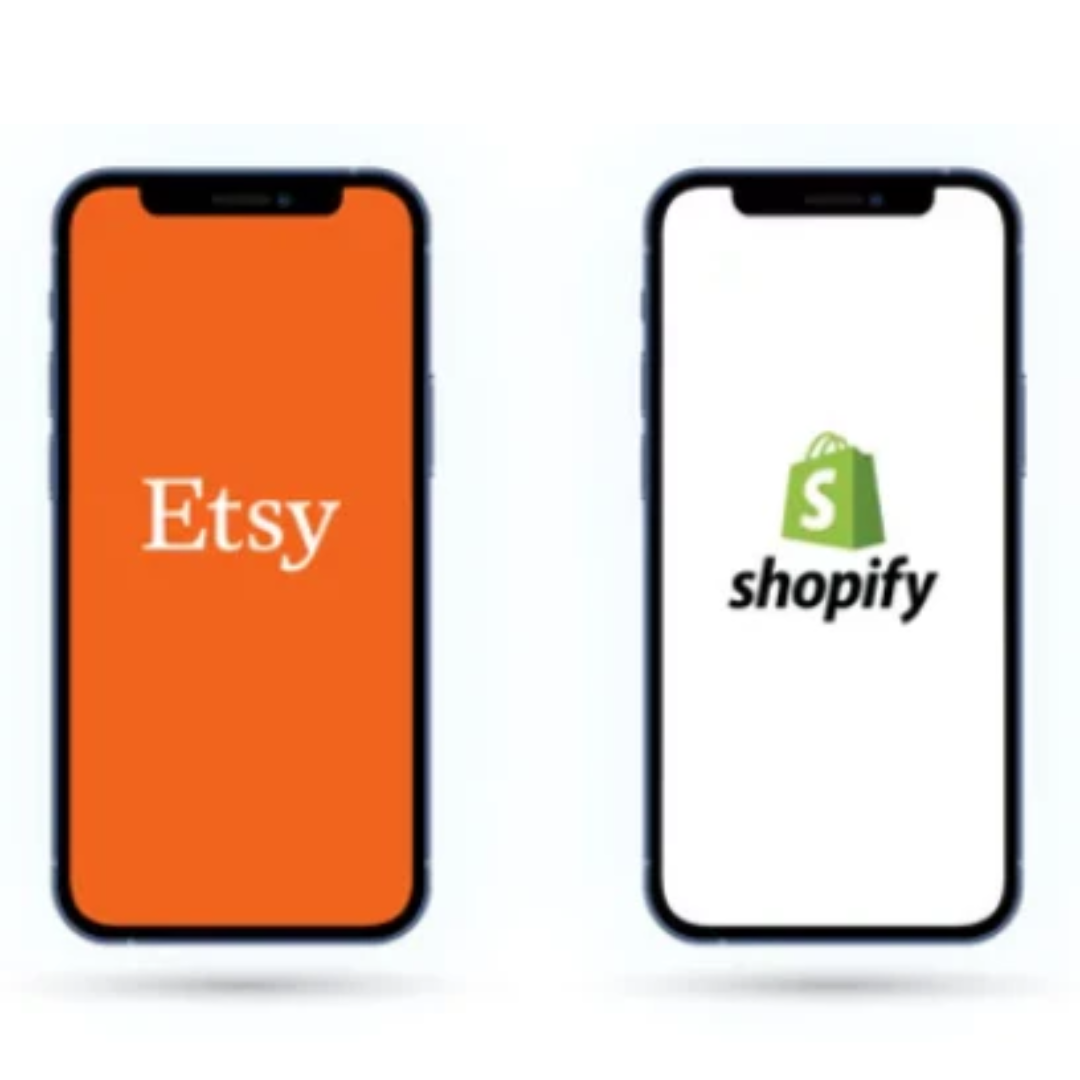If you're reading this guide, chances are you have to decide how and where you will sell your products online. If you've narrowed it down to Shopify and Etsy, you'll soon learn that the two have a few things in common, but they are very different. Both are platforms where you can sell your products, but Shopify gives you a webstore, and Etsy is a marketplace.
Until recently, Etsy was the place to go for creatives, so Shopify was not the first option for artists, crafters, or anyone selling quirky or unique products. But after the recent price hike, more and more Etsy sellers are exploring other options.
If you are looking for the best place for your digital store, this guide will give you the information you need without any fluff, fancy buzzwords, or complex IT terminology. Let's dive into both platforms' services and tools and see how they compare.
Shopify vs. Etsy - What is Shopify?
Founded in 2006 in Canada, Shopify quickly evolved into a world-leading eCommerce platform. It is a fully hosted solution that makes it simple to get a sophisticated digital store up and running. It has all the features and functions a business owner needs to run a webstore and grow a brand. It also has analytical tools that can help store owners manage business goals.
It is an easy platform and doesn't require coding skills; anyone can start an eCommerce store with Shopify and eventually scale it. Shopify has hundreds of integrations and apps that extend the functionality. It works for businesses of all sizes and processes billions of transactions every year.
What is Etsy?
Launched in the United States in 2005, Etsy is a popular digital marketplace. Sellers create an account and digital storefronts for showcasing and selling products. They share space with thousands of other merchants who abide by the strict acceptance criteria. If you want to sell your products on Etsy, they have to be handmade, crafted, or over 20 years old and considered vintage.
Although Etsy is straightforward and valuable in developing products and a customer base, sellers lack autonomy in managing their stores, and it's not simple to scale. The market is fiercely competitive, so standing out from the crowd is essential for success. Etsy works well as an entry-level online shopfront and suits new sellers with unique items and lower stocks.
Etsy has a less restrictive option called Etsy Pattern. It allows sellers to build and sell on their own websites with fewer product restrictions but charges a monthly fee after a 30-day trial period.
How to Choose Between Shopify & Etsy?
If you take both options into context away from the internet, Etsy is like a craft market, and Shopify is more similar to a boutique store. If you set up a stall and sell your goods at a craft market, you are one of many creatives in one space, but you have the footfall of people looking for unique products to buy. You'll have complete control if you open up a boutique store, but you won't have the footfall.
Shopify
PROS |
CONS |
|
|
Etsy
PROS |
CONS |
|
|
The Webstore Provider vs. The Crafty Marketplace
Despite the apparent pros and cons to both options, you may still be unsure about what's best for you. When you have to decide between two platforms, the seven most important aspects to consider are;
- Ease of use
- Overall design and customizability
- How do customers find your store?
- Payment options and pricing
- Features
- Help!?
- Security
Let's see how Shopify and Etsy stack up against one another.
#1. Ease of Use
Both Shopify and Etsy are intuitive and easy to use. Shopify has all the tools to make setting up a shop really easy. You'll be able to track your orders, sync your inventory, and do so much more - all with expert guidance.
Etsy is also straightforward, and it's a lot simpler to use than Shopify. You sign up, upload at least one product, and you're good to go. On the downside, the sign-up does require a lot of information, but you can use a lot of this information later on, so most of it is a once-off action.
Overall, Etsy requires less time than Shopify, but it also doesn't have as many features. Both platforms provide clear guidance and are suitable for newcomers.
Conclusion: If you're looking for the quickest, most straightforward way to start selling, Etsy has the edge over Shopify.
#2. Store Design and Customizability
Just like a brick-and-mortar store, a digital store should look inviting, professional, tidy, and attractive. It should have a sensible layout and make shoppers feel comfortable spending their money.
With Etsy, all you can do to customize your shop is upload a logo. This could be an advantage if that's all you're comfortable with. It does not leave room for error and saves time. Etsy store pages are easy to navigate, uniform, clean, and everything fits perfectly. But, if you want to build your brand and create visibility, Etsy is limited. It's challenging to stand out from the crowd when everyone looks the same.
Shopify has endless options for customizability and design, and it's mobile-friendly. You can choose from free or paid themes and customize them to your needs. There are even industry-focused themes to make things easier.
Some templates have functions suited to a particular industry and make your store pop. For example, apparel-focused themes could feature a zoom function so customers can zoom in on items.
Conclusion: Etsy reduces the risk of making mistakes, but it's a one-size-fits-all option. If you want to make your brand shine, Shopify is the obvious choice.
#3. How do Customers Find Your Store?
When you begin marketing your store, you'll want customers to find it online through a URL. Since Etsy is a marketplace, your shop will be listed as part of its domain name. To find your store on Etsy, they would type in: www.etsy.com/shop/" yourstorename".
When you create a Shopify store, you have to register a domain to have your own URL. Although it comes at an extra cost, this is excellent for giving your brand a voice. Shopify makes the process simple with a structured sign-up process. To find your store, they would type in a URL like www." yourstorename" .com.
Conclusion: Shopify is a better option for building your brand because you'll need a domain name to do so. If you don't want to pay for a domain, and brand-building is not your focus, Etsy is okay.
#4. Payment Options and Pricing
The main reason behind starting an online store is obvious: to make money. To get your payments in, you need the ability to process them. It would help if you also watched overheads and monthly costs.
Shopify has a 14-day free trial, after which you have to sign up for a monthly plan. The pricing options on Shopify are:
- Basic Shopify - For $29/month, you get an eCommerce website, unlimited products, two staff accounts, 24/7 support, and multichannel selling.
- Shopify - For $79/month, you also get gift cards, professional reports, lower credit card rates, POS extras, and an additional three staff accounts.
- Advanced Shopify - For $299/month, you get all the above plus advanced reporting, 3rd party calculated shipping rates, a total of 15 staff accounts, and even lower credit card rates.
Shopify provides various payment options for customers, including PayPal, Google Pay, Apple Pay, and many more. It even has an in-house payment option called Shopify Payments, which doesn't charge transaction fees! The card processing fee starts at 2.9% + $0,30 on the Basic Shopify plan and gets lower if you upgrade to more advanced plans. This is significantly cheaper than Etsy's transaction fees which are now a whopping 6.5%!
On the other hand, Etsy does not charge a monthly fee. However, depending on how much you're selling, Etsy costs can run as high (or higher!) than the Shopify costs. Let's do some sums with a practical example.
The ACME Vegan Leather Journal Shop
Imagine you have a webstore selling personalized vegan leather journals. Each journal costs $20,00. If you sell 100 journals per month on Etsy, your basic fees will amount to:
- $0.20 listing fee per product = $20 (this is renewed every time an item sells)
- 6.5% of the total sales price per product ($1,30 each) = $130
- 3% payment processing fee per product ($0,60 each) = $60
Total: You would pay $210 for the month in fees, and this does not include advertising fees or subscription fees if you want a few more additional features.
If you use Shopify Basic, and Shopify Payments, your basic fees would amount to:
- Subscription fees = $29/month
- Card processing fees (2.9% + $0,30 per transaction) = $88
Total: You would be paying $117 per month, making Shopify cheaper!
Of course, you could sell different quantities or sign up for another Shopify subscription. It's best to treat each business individually, do the projections and calculations, and go from there.
Conclusion: Shopify clearly wins this round, hands down. However, it would depend on what you're selling and other fees like shipping, etc.
#5. Features
Etsy gives you every essential tool you need to manage your Etsy store easily. The 'Sell on Etsy' app makes it simple to sell on the go, and there are marketing and advertising tools to help draw buyers to your store. Etsy also has a tool that lets you create and manage coupons and buy and print discounted postage labels to help you save on shipping.
For $10 a month, you can upgrade to Etsy Plus, which will give you:
- Banner templates and other customization options.
- Discounts on business cards and other marketing materials.
- Email alerts to notify shoppers of restocked items.
- Advertising credits, and more.
In comparison, Shopify has outstanding features and tools to help you grow and promote your brand. Even Basic Shopify comes with functions like:
- Gift cards.
- Discount codes.
- A POS app.
- Fraud Analysis.
- SSL certification.
- 3rd-party calculated shipping rates.
- Multichannel sales tools.
- SEO tools.
- Guest checkouts.
- Inventory management tools.
- Order management tools.
- An abandoned cart recovery tool.
Overall, these features make the shop more accessible, safer, and sales-driven. The inventory system is particularly useful in managing and tracking stock and analyzing sales.
Conclusion: Shopify's features are invaluable if you are serious about online selling. Etsy's basic toolkit is adequate if you're only selling smaller quantities.
#6. Help!?
We all need a little help from time to time, even with the most user-friendly platform. Let's see what Shopify and Etsy offer when it comes to caring for customers.
With Shopify, you get 24/7 support on the phone and live chat. Or you can get help via social media, email, video tutorials, and forums. The Shopify Help Center is clear, user-friendly, and offers a search function to several guides and articles that will help you solve most issues.
You get advanced specialist support if you sign up for a more advanced subscription. For larger companies, this is an excellent feature.
Etsy's Help Center is clearly laid out, and it has a handy search function that makes navigation simple. The forum makes it easy to join the Etsy community, joining discussions and asking questions. You can email the support staff for one-on-one support or schedule a call.
Conclusion: Although Etsy's customer care is excellent, Shopify is available 24/7.
#7. Security
Finally, we have a tie! Shopify and Etsy are both PCI-compliant and offer site-wide SSL certification. You won't have to worry about security with either of them.
The Verdict: Shopify vs. Etsy
Etsy is a creative digital marketplace that showcases a massive variety of products from other sellers. Shopify gives sellers their own website where they are in control of their customers' shopping experience.
Until recently, Etsy was the place to sell quirky t-shirt designs, artisanal paper, vintage typewriters, and other handcrafted or unique items. But, even if you're a crafter, purveyor of vintage goods, or artisanal creator, Etsy may not be the best option for you.
After the company applied massive price hikes, it alienated many sellers and pushed them to find alternative options, like Shopify. Etsy may still be a solution for infrequent sellers, but for regular sellers, Shopify offers more.
It's clear that Shopify has more pros than Etsy and fewer cons, but that doesn't mean it's best for everyone. If, for example, you've inherited a collection of vintage items and want to sell them online, Etsy is the way to go. It would be pointless to go to the expense of setting up a digital store for a limited time. Or, if you handcraft lace and only sell a couple of pieces a month to a niche market, Etsy is your best bet.
However, if you want to open an online shop where you'll make regular sales or sell in larger quantities, it would be wise to explore Shopify. Even if it seems a bit daunting to start, it's really not that complicated.



